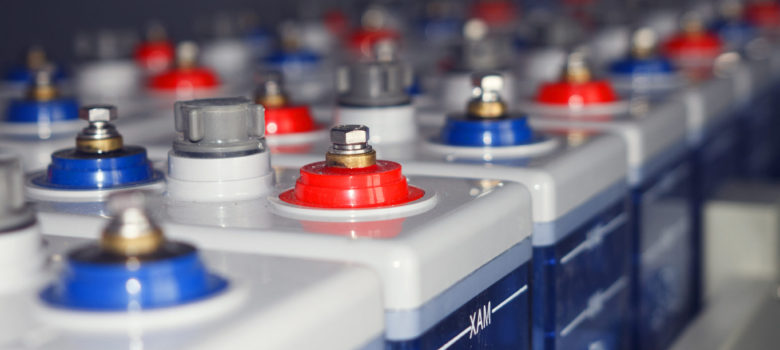
What are the benefits of battery storage technology?
Battery storage enables us to hold electricity and use it at a later point. This is important because it means that we don’t have to ensure a constant supply of electricity into the National Grid. With carbon reduction targets getting stronger, the price of imported gas volatile, and coal power no longer viable in the UK, moving to a future centred on renewable energy is more important than ever.
Battery storage technology has now finally got to a point where we can expect within the next few years to see it used both for managing whole countries’ energy stores, and on a commercial level. But there is still work to do to ensure it is affordable and efficient enough to become a mainstay in energy management.
What needs to be refined in order for battery storage to be adopted on a wider scale?
- Cost. Batteries are currently expensive. This is an issue because passing battery storage costs onto consumers would not be popular! A lot of people don’t care enough about the benefits of battery storage to spend more on their bills – or they simply don’t have the money.
- Lifespan. Batteries are damaged by charge-discharge cycles, meaning that every time you use them, it reduces their efficiency. Clearly, the less often they need replacing, the cheaper they will be to use.
- Size. Batteries can be really bulky, and the fact they take up a lot of space means you can only use them if you have somewhere to put them!
- Recycling. Although elements of most batteries can be recycled, a lot of the materials can’t. Extracting these materials is difficult and time-consuming, and the parts that can’t be recycled contribute to landfill, which is troubling considering one of the main reasons for developing batteries in the first place is to move to a greener future.
- Manufacturing. Making the batteries is a complicated process and creates emissions.
- Toxic/flammable components. Running the batteries safely can be an issue, and reducing the amount of hazardous materials involved needs to be a consideration.
Why do we need battery storage technology?
We rely on battery storage technology to make possible a future with renewable energy at its centre. At the moment, renewables are held back by their not being able to provide constant levels of electricity, i.e. solar and wind relying on certain weather conditions. To be able to make green energy viable on a commercial scale, we need to be able to store it and use it at as and when we need it.
The benefits of this will be as follows:
- Domestic – People can save money on their energy bills by generating and storing energy at home.
- National – Using renewables as much as possible will bring down emissions and the other nasty side effects of fossil fuel generation, such as air pollution. Energy demand can be managed better, to prevent blackouts and ensure it is always there when people need it.
The future of battery storage technology
Lithium ion is the leading battery technology at the moment. They are lightweight in comparison to other forms of battery and hold their charge better. But lithium ion batteries have issues. They are hard to scale up, have problems with overheating, and they even explode sometimes. Also, the batteries wear out over time (you’ll know this if you have an iPhone – they always stop working after a few years).
Tesla’s Gigafactory plans to bring down the cost of batteries for their electric cars through economies of scale resulting from mass production. They may lead the way for other companies to do the same, but Tesla has a level of investment which gives it more options for development than smaller companies.
Despite Elon Musk downplaying the subject, there are concerns that lithium stores will run out and fail to meet demand. As such, researchers are also looking into different technologies, mainly moving away from chemicals and centring on liquid metal – and salt water- instead.
 Molten metal batteries
Molten metal batteries
Molten metal batteries are still in development, but the basic idea is this:
a plug of metal made from two different metal alloys of different densities is dropped into a container, and salt is poured on top. When the battery powers up, and the temperature inside the battery reaches 470°C – about the same as a car combustion engine – the metals melt and automatically divide. The salt melts too and forms a layer between them, conducting electrons back and forth.
It’s a promising new technology, because the batteries could be made from cheap and readily-available materials. But refining the process is slow work and requires funding. Investors are reluctant to take a gamble on batteries, when there are so many software startups which are more likely to turn a profit.
Another future idea is ‘saltwater batteries’, a non-flammable and non-toxic alternative – but the leading company developing them recently filed for bankruptcy. This shows just how difficult the market is, and why battery storage technology develops at such a slow pace.
In order for battery storage to become efficient enough for widespread use, we need batteries that are reliable, cheap enough to mass-produce, and also less toxic, so they are safer and easier to dispose of at the end of their useful life.
Installing battery storage
Interested in having a battery storage system installed in your home? We have scoured the country for the best tradespeople, so that we can make sure we only recommend those we really trust.
If you would like us to find you a local installer to help install a battery storage system in your home, just fill in the form below and we will be in touch shortly!













A battery system based on the Hydrogen Bromide Flow Battery principle is currently in development. A prototype has been tested successfully, and commercial applications are within reach.